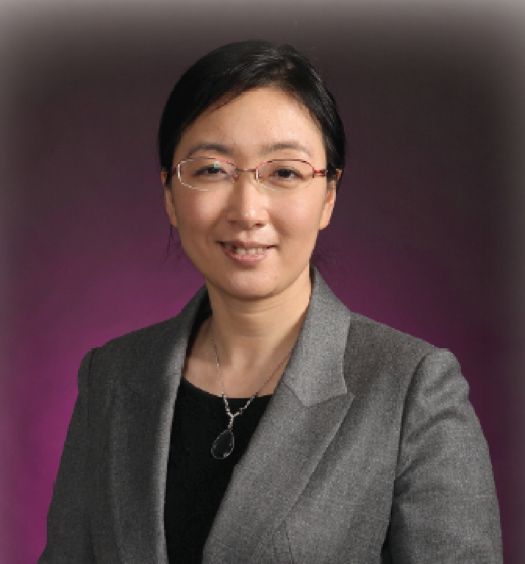Breast Center
Breast Center
Overview
Established in 1992, Peking University People's Hospital Breast Center (PKUPHBC) is China's first formally recognized specialized breast center. Since its founding, the center has remained at the forefront of comprehensive breast disease management nationwide. Over the past three decades, it has adhered to the principles of early detection, precision, standardization, and compassionate care. It has also simultaneously pioneered an integrated and patient-centered model of diagnosis and treatment. With its outstanding clinical care, robust research capabilities, and far-reaching academic influence, the center has become a nationally prominent institution for breast disease diagnosis, treatment, and research, earning widespread recognition in both China and across Asia.
The center currently employs more than 60 medical professionals, including 8 chief physicians, 6 associate chief physicians, 4 attending physicians, and 37 nurses.
Clinical Features and Specialized Care
Operating across the Xizhimen Campus and Tongzhou Campus with 92 inpatient beds, the center ensures consistent and personalized care through standardized management and individualized treatment protocols spanning outpatient, inpatient, and post-operative rehabilitation services. With more than 110,000 annual outpatient visits, the center performs one of the highest numbers of breast cancer surgeries among general hospitals in China. Notably, 15% to 20% of breast cancer cases are diagnosed as carcinoma in situ, while over 75% are detected at an early stage (Stage 0–I). The breast-conserving surgery rate exceeds 40%, well above the national average and closely aligned with international benchmarks.
As a national leader in breast disease management, the center has pioneered multiple core technologies and specialty programs. Over decades of clinical innovation, the center has established a comprehensive system featuring:
1. Integrated Precision Imaging Diagnostics
Our surgeons are familiar with all breast imaging modalities (ultrasound, mammography, and contrast-enhanced MRI) and capable of interpreting them to ensure rapid and accurate diagnoses. The department performs 20,000 ultrasound examinations and 5,000 core needle biopsies annually, with more than 70% of biopsies confirming malignant tumors.
2. Minimally Invasive & Aesthetic Surgery Program
As a pioneer in breast-conserving and post-mastectomy reconstruction surgery in China, we completed:
200 reconstructive procedures in 2024, including implant-based, latissimus dorsi flap, and DIEP flap reconstructions;
Endoscopic and robotic-assisted breast surgeries.
All procedures prioritize oncologic safety and cosmetic outcomes.
3. Multidisciplinary Treatment (MDT) Approach
Weekly MDT rounds and specialized clinics address key clinical issues, including:
Breast surgery;
Neoadjuvant/adjuvant therapy;
Breast reconstruction;
Bone metastases;
Lymphedema management;
Fertility preservation;
Genetic counseling.
This systematic approach improves complex case management and develops personalized treatment plans collaboratively, ensuring that each patient receives precise and comprehensive care.
4. Day Surgery & Weekend Services
Our day surgery/chemotherapy centers feature:
Reduced hospitalization durations;
Enhanced bed turnover efficiency;
Weekend availability for elective surgeries and outpatient services.
5. Digital Health & Comprehensive Support
The center has:
8 expert-led telemedicine teams, providing more than 3,000 online visits annually;
Dedicated rehabilitation clinics with over 900 patients per year, providing lymphedema management/central venous access care/post-surgical body image recovery.
6. Early Detection & Screening Excellence
With optimized outpatient channels and efficient screening mechanisms, the center maintains one of the highest early-stage and in situ breast cancer detection rates in Beijing. Its standardized "early detection and intervention" workflow has been replicated by numerous hospitals across the country.
7. Advanced Techniques
As a pioneer in technological innovation, the center has introduced numerous advanced techniques to China, including breast-conserving surgery, neoadjuvant therapy, fluorescence-guided sentinel lymph node biopsy, immediate/delayed breast reconstruction, and minimally invasive endoscopic/robotic procedures. These advanced techniques provide not only enhanced oncologic safety but also improved cosmetic outcomes and faster recovery.
Education
The PKUPHBC serves as a key educational hub under the Peking University Health Science Center, training undergraduates, postgraduates, and doctoral candidates. As a National Certified Training Base for Early Breast Cancer Diagnosis and Endoscopic Breast Surgery, the center has established a mentorship-driven, project-based, and internationally oriented research training system that integrates clinical practice, scientific research, and translational innovation.
Currently, the center mentors more than 20 graduate students and postdoctoral fellows in total, along with over 40 visiting physicians annually. It organizes 2–3 national continuing medical education (CME) programs each year, such as the Standardized Management of Early Breast Cancer Training Course and Endoscopic Breast Surgery Workshop, contributing to the professional development of thousands of breast specialists across China. In 2024, the center spearheaded high-impact academic events, including the Beijing Breast Cancer Forum, the Women's Health Symposium, and the Breast Endoscopic Surgery Training Camp, further advancing clinical dialogue and technical standardization.
Research & Innovation
The center has led/participated in nearly 100 research projects funded by the National Key Research and Development Program of China, the National Natural Science Foundation of China (NSFC), Beijing Municipal Science and Technology Commission, as well as various international and domestic multicenter clinical trials. Our key focus areas include early breast cancer screening and metastatic mechanisms, radiomics and AI-assisted diagnostics, targeted therapy, immunotherapy, and lncRNA functional studies.
To date, the center has published dozens of SCI papers in top-tier journals such as Science Translational Medicine, Science Bulletin, Breast Cancer Research, and iScience. Its work has been featured at premier conferences, including the American Society of Clinical Oncology (ASCO), the European Society for Medical Oncology (ESMO), and the San Antonio Breast Cancer Symposium (SABCS).
Multiple faculty members have held leadership roles in top-tier national academic societies, including the Chinese Society of Breast Surgery (CSBrS), the Chinese Society of Clinical Oncology (CSCO), and the Chinese Anti-Cancer Association (CACA). They have also contributed to the development of national guidelines, thus advancing the standardization of breast cancer care across the country.
Looking ahead, the PKUPHBC will continue to strengthen translational research and global collaborations, striving to become a world-class clinical and research hub for breast diseases.


